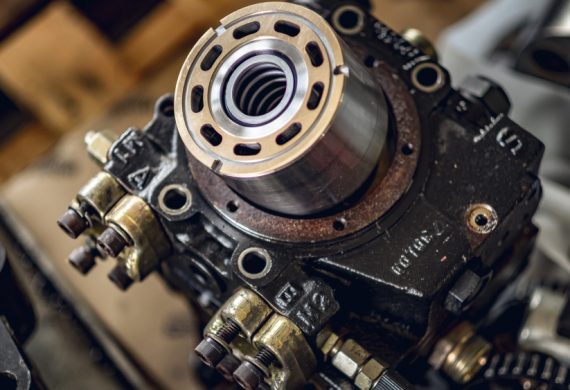Understanding the Fundamentals of Hydraulic Motors

Understanding the Fundamentals of Hydraulic Motors
Hydraulic motors transform fluid energy into rotary mechanical power which is usually applied to a load through a shaft.
For our latest blog, we are going to explore different features of hydraulic motors and how they are used across a wide range of sectors.
Choosing the Best Hydraulic Motor
The application of hydraulic motors generally dictates the required horsepower and speed range of the motor, although the actual speed and torque needed can vary while maintaining the required horsepower. The type of motor used depends on the required life, reliability and performance.
Once the fluid type is determined, choosing the size is based on the life and economics of the overall installation on the machine. A fluid motor that operates at less than rated capacity provides a service life extension more than proportional to the reduction in the operation below the rated capacity.
The maximum horsepower for the hydraulic motor is reached when it is operating at the maximum system pressure and at the maximum shaft speed. The initial cost will be lower for a motor that is always operated under these conditions. The overall cost of the motor with speed reduction must be considered to optimise the overall drive installation costs where the output speed must be reduced.
Three Common Hydraulic Motor Malfunctions
Most motor problems are caused by poor maintenance, improper fluid or improper operation, with the motor no different than any other component of the hydraulic system.
Poor maintenance programs can also lead to major problems, with typical slips including –
• Faulty connections which allow dirt and air into the system with lower pressure causing erratic operation.
• Motors not installed correctly – Misalignment of the motor shaft can cause bearing wear which leads to lower efficiency. This can also reduce the torque, increase friction drag and heating resulting in shaft failure.
• If a motor fails you will always need to find the cause of the failure, as this could recur at a later date and leads to costly repairs.
Exceeding a motor’s operating limits can also lead to motor failure, with every motor having design limitations with regards to pressure, speed, torque, displacement, load and temperature.
Want to Find Out More? Get in Touch Today
If you have any questions about hydraulic motors, please contact Dynamic Pumps who have a team of specialists with over 25 years of industry experience.
Dynamic Pumps also offer the leading industry pump and motor repair service, with a 24-hour turnaround offered on most parts.
